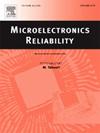基于机器学习的翅片散热器热建模代理模型
IF 1.9
4区 工程技术
Q3 ENGINEERING, ELECTRICAL & ELECTRONIC
引用次数: 0
摘要
随着现代电源变换器功率密度的不断提高,热系统的设计越来越受到人们的重视,因为热系统的性能是影响功率密度和决定电源变换器可靠性的关键因素。作为电源转换领域的主要散热器件,散热器对提高电源转换器的可靠性起着重要的作用。然而,在现场使用中,很难准确预测器件的热性能。因此,这项工作的目的是提出一种基于高性能计算和机器学习的散热器建模方法。所建立的基于机器学习的代理模型可以预测散热器的热性能,而无需复杂的分析模型。本文章由计算机程序翻译,如有差异,请以英文原文为准。
Machine learning-based surrogate models for finned heatsink thermal modeling
With the continuous increase in power density in modern power converter, there is a growing focus on thermal system design, as its performance is a key factor influencing power density and determining the reliability of power converter. As the main heat dissipation component in the power conversion field, the heatsink plays a significant role in improving the reliability of power converters. However, it is difficult to forecast the accurate thermal performance of the device in field use. Thus, the purpose of this work is to present and propose a methodology for heatsink modeling that are based on high-performance computing and machine learning. The developed ML-based surrogate models can predict the thermal performances of the heatsink without a complicated analytical model.
求助全文
通过发布文献求助,成功后即可免费获取论文全文。
去求助
来源期刊

Microelectronics Reliability
工程技术-工程:电子与电气
CiteScore
3.30
自引率
12.50%
发文量
342
审稿时长
68 days
期刊介绍:
Microelectronics Reliability, is dedicated to disseminating the latest research results and related information on the reliability of microelectronic devices, circuits and systems, from materials, process and manufacturing, to design, testing and operation. The coverage of the journal includes the following topics: measurement, understanding and analysis; evaluation and prediction; modelling and simulation; methodologies and mitigation. Papers which combine reliability with other important areas of microelectronics engineering, such as design, fabrication, integration, testing, and field operation will also be welcome, and practical papers reporting case studies in the field and specific application domains are particularly encouraged.
Most accepted papers will be published as Research Papers, describing significant advances and completed work. Papers reviewing important developing topics of general interest may be accepted for publication as Review Papers. Urgent communications of a more preliminary nature and short reports on completed practical work of current interest may be considered for publication as Research Notes. All contributions are subject to peer review by leading experts in the field.
 求助内容:
求助内容: 应助结果提醒方式:
应助结果提醒方式:


